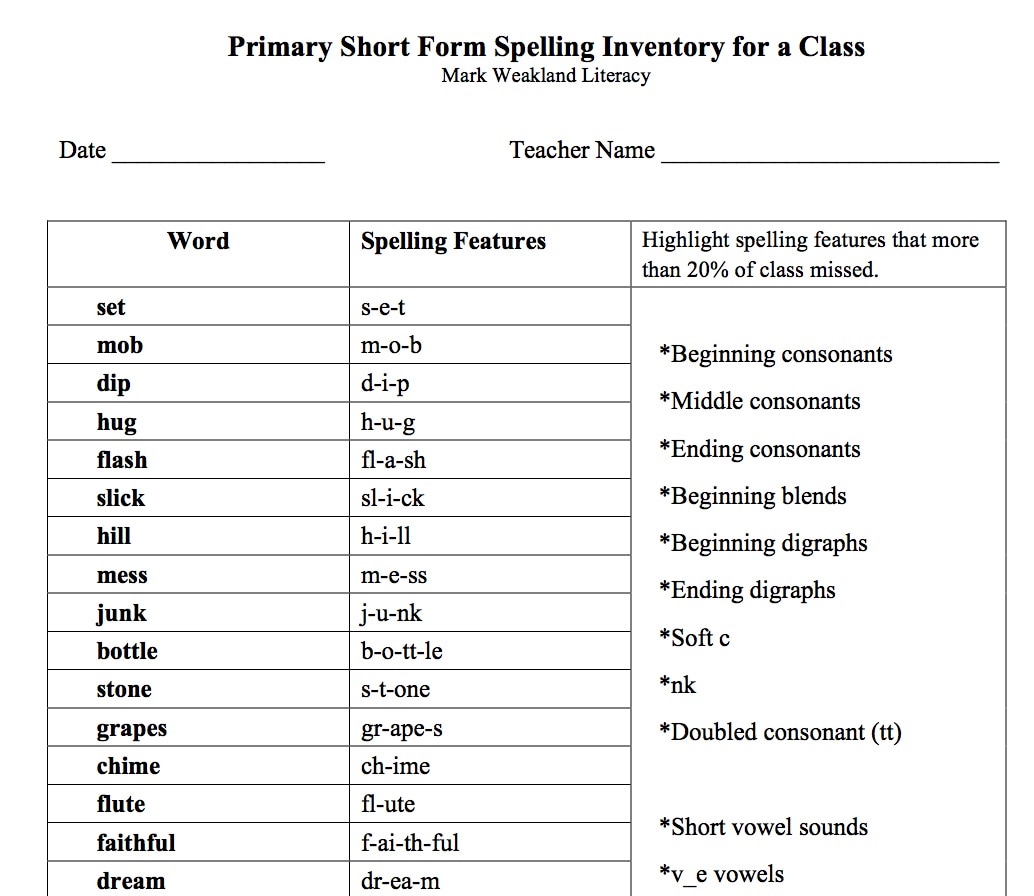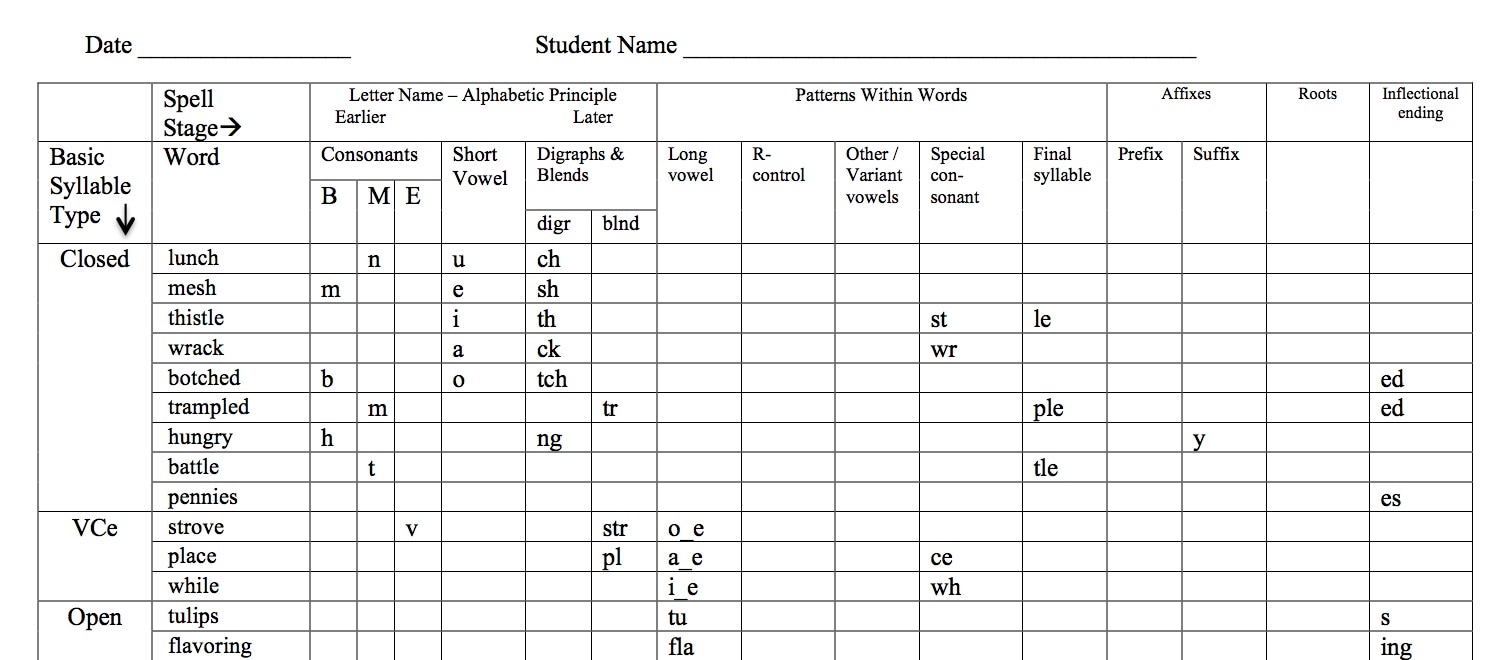|
Here in the mountains of western Pennsylvania spring is busting out all over, with dogwoods and honeysuckle blooming, peepers peeping in the wetlands, and returning hummingbirds busily buzzing about as they search for nectar to sip. Spring also signals the fast approaching end of the school year. So I encourage teachers reading this post to give one last spelling inventory before field trips and assemblies take over and you finally wave goodbye (happily, sadly, and/or thankfully) to the last kid as he skips out your classroom door. I first wrote about spelling inventories back in September of 2015. Then I asked teachers to consider giving them to gather information that would help start the year. Now, I ask that you consider them as a bookend assessment that can help provide closure to your year, as well as kick start the next year for another teacher. Spelling inventories are “big picture” assessments, designed to give teachers information about students’ broad knowledge of orthography, which is the spelling system of our English language. More specifically, they give information on students’ ability to apply the alphabetic principle, remember and use conventional spelling patterns, form words based on tense and spelling conventions, and apply word meaning, all in service to correctly spelling words as they write. Given at the end of the year, a spelling inventory is an easy and efficient way to gain information about what your class generally knows about how words work, as well as what your class has mastered over the course of the year. It also provides specific diagnostic information that can be used to help individual students in specific ways. Finally, it helps you to understand your students’ overall reading and writing achievement. Because she states things succinctly (it took me four tries to correctly spell that word, by the way), I’ll quote Marcia Invernizzi: “…qualitative spelling inventories assess children’s developmental spelling knowledge that in large measure determines the quality of their reading and writing” (Invernizzi, p.17). Thus, spelling inventories go a long way in explaining how and why children read and write as they do. If you pass along the information you gain from giving an inventory, teachers in the next grade up will surely thank you, for the information provides insight into the skills of the students who will roll through their door next year. For example, if you're a second grade teacher who gives an inventory next week, you may find that five students still have not fully mastered the hearing, reproduction, and spelling of the short /a/, /i/, and /e/ sounds. Or if you're a fifth grade teacher, you may find that six students lack control of the ture and sure spellings for the /cher/ and /zhur/ sounds found in words like capture, posture, treasure, and leisure. Once you have this information, pass it along to the third grade and six grade teachers. And take a moment to reflect on the scores and decide if there’s something different you want to do with your instruction and activities next year. There are many inventories out there, including Sylvia Green’s Primary and Elementary Word Analysis (Green, 2016), which functions as both a spelling inventory and a phonics inventory, Richard Gentry’s Monster Test (Gentry, 2007), most appropriate for kindergarten children but also used during the first half of first grade, and complex primary and intermediate elementary inventories from the Words Their Way spelling program (Bear, et al, 2015), among others. Of course, you can simply go to the “File Cabinet” tab of this web site and download one of the inventories I have created! At the bottom of this post you can see pieces of two of them. I created spelling inventories for my upcoming book, Super Spellers: Seven Steps to Transforming Your Spelling Instruction (Stenhouse, fall of 2017). Feel free to download any or all of them. Then assess your students with one. You can even report back to me on how the inventory worked for you. Operators are standing by to take your call! (Okay, not really, but it is fun to say). By the way, when compared to other inventories, my inventories have the added advantage of coming in two distinct forms. Also, the long form inventory words are cross-referenced with the seven syllable types. Finally, my short form inventories are super easy to score, and they come in two forms, one for the whole class and one for the individual. To wrap things up, the reasons for giving any specific spelling inventory are generally the same: determining the encoding skills of students, finding out what word features students have control of, determining the spelling stage of each student, and crafting classroom instruction that meets students at their developmental levels. Regardless of which inventory you start with, you can always move to a more or less complex one that fits your level of knowledge and comfort. I encourage you to find a spelling inventory that you like and understand and then give it to all of your students before the end of the school year. Best of luck with you spelling instruction and your end of the year activities, and keep your eyes on the prize of summer vacation! Citations:
|
Mark WeaklandI am a teacher, literacy consultant, author, musician, nature lover, and life long learner.
|


 RSS Feed
RSS Feed